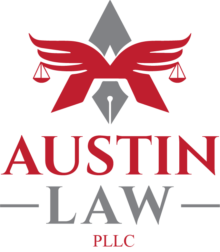In the wake of rising awareness around domestic violence, the federal government enacted significant legislation aimed at enhancing public safety. One crucial aspect of this legislation is found in 18 U.S.C. § 922(g)(9), commonly known as the Lautenberg Amendment, which prohibits individuals convicted of a misdemeanor crime of domestic violence (MCDV) from possessing firearms. Let’s explore the implications of this law, other related charges that can impact gun ownership, and how Austin Law can assist those navigating these complex issues.
What Does the Lautenberg Amendment Entail?
Passed in 1996, the Lautenberg Amendment amended the Federal Gun Control Act of 1968. Its primary purpose is to extend the firearms ban to individuals convicted of misdemeanors involving domestic violence. This amendment reflects Congress’s recognition that individuals who have shown a propensity for violence against loved ones pose a significant risk to public safety.
Key Provisions of the Law
- Qualifying Offenses: The law defines a “misdemeanor crime of domestic violence” as any state or federal misdemeanor that includes:
- The use or attempted use of physical force, or
- The threatened use of a deadly weapon.
- Broader Impact: The law applies retroactively, meaning that individuals convicted of MCDVs prior to the law’s enactment are also affected. As such, even past convictions can disqualify a person from firearm possession.
Who Is Affected?
Individuals with a MCDV conviction are prohibited from owning or possessing firearms. This includes not just those directly charged with domestic violence offenses, but also individuals whose misdemeanors meet the law’s criteria, such as simple assault against a spouse.
Legal Considerations for Past Convictions
For a misdemeanor conviction to trigger the firearm possession ban, certain conditions must be met:
- The defendant must have been represented by counsel or knowingly waived the right to counsel.
- If entitled to a jury trial, either the case must have been tried by a jury, or the defendant must have waived this right.
- The conviction must not have been expunged or set aside.
Other Charges Impacting Gun Ownership
In addition to misdemeanor domestic violence convictions, several other offenses can lead to restrictions on firearm ownership:
- Felony Convictions: Under 18 U.S.C. § 922(g)(1), individuals convicted of a felony lose their right to possess firearms, often for life.
- Drug Offenses: Convictions related to controlled substances can also prohibit firearm possession, reflecting concerns about the potential for violence in drug-related situations.
- Protective Orders: Individuals subject to a domestic violence protective order are restricted from firearm possession under 18 U.S.C. § 922(g)(8).
- Certain Mental Health Conditions: Individuals who have been adjudicated as mentally incompetent or have been involuntarily committed to a mental institution may also be barred from owning firearms.
Implications for Law Enforcement
The Lautenberg Amendment provides law enforcement with powerful tools to prevent potential violence:
- Removal of Firearms: The amendment allows for proactive measures in high-risk domestic situations, enabling law enforcement to remove firearms from individuals who are legally prohibited from possessing them.
- Federal Prosecution: It serves as a basis for federal prosecution in cases where individuals violate the firearm possession ban.
The Removal Process
In situations where a firearm is present, law enforcement can notify the individual of their illegal possession under the new law. Depending on the situation, officers may take temporary custody of the firearm or, in more volatile circumstances, obtain a search warrant for immediate removal.
Unique Considerations for Law Enforcement Officers
One significant aspect of this legislation is that it removed previous exemptions for military and law enforcement personnel. Now, officers with qualifying misdemeanor convictions are barred from firearm possession, even while on duty. This creates complex scenarios where officers convicted of serious felonies might still possess service weapons while those with misdemeanor domestic violence convictions cannot.
Important Advice: Consult Your Attorney
If you have any convictions related to domestic violence, felonies, or other disqualifying offenses, it’s crucial to discuss these issues with your attorney before accepting any plea deal. A plea agreement may have significant implications for your rights, including your ability to possess firearms. Understanding the full impact of a plea on your future is essential for making informed decisions.
How Austin Law Can Help
Navigating the implications of the Lautenberg Amendment and other firearm restrictions can be complex, especially for individuals facing legal challenges. Austin Law is a reliable law firm dedicated to assisting clients in understanding their rights and obligations under these laws. Our experienced attorneys can provide:
- Legal Guidance: We can help you understand how various laws affect your rights regarding firearm possession.
- Representation: If you’re facing charges or have questions about your past convictions and their implications, our team can represent you effectively.
- Advocacy: We will work to ensure that your legal rights are protected throughout the process.
Conclusion
The Lautenberg Amendment and related firearm restrictions reflect a critical shift in how the law addresses domestic violence and public safety. By prohibiting individuals convicted of misdemeanor domestic violence and other serious offenses from possessing firearms, these laws aim to reduce the risk of further violence.
If you or someone you know is affected by these laws, consulting a legal professional is essential. Austin Law is here to provide the support and guidance you need to navigate these complexities. As we continue to address domestic violence and firearm ownership issues in our society, reach out to Austin Law for assistance with any questions or legal concerns you may have regarding these important matters.
